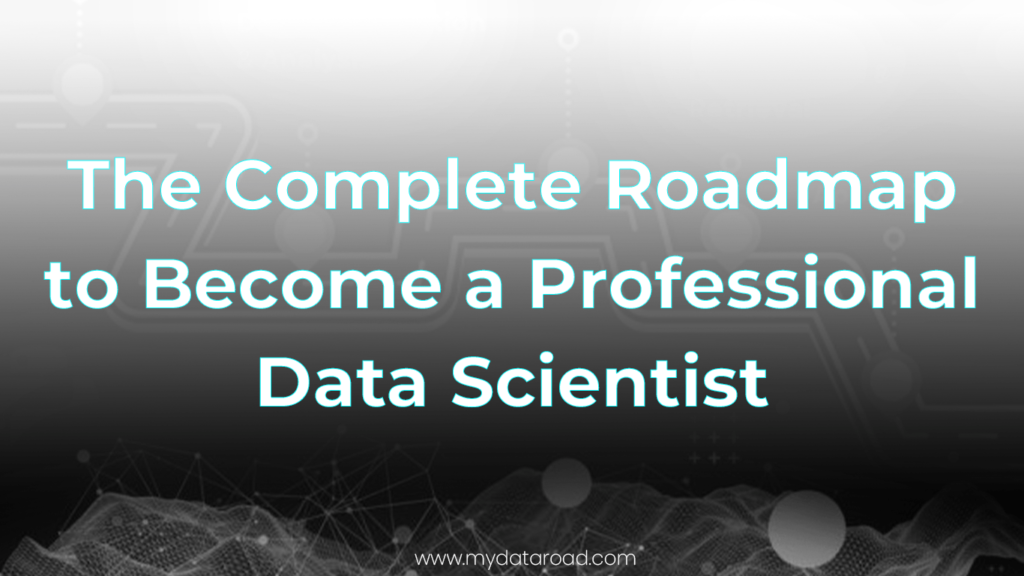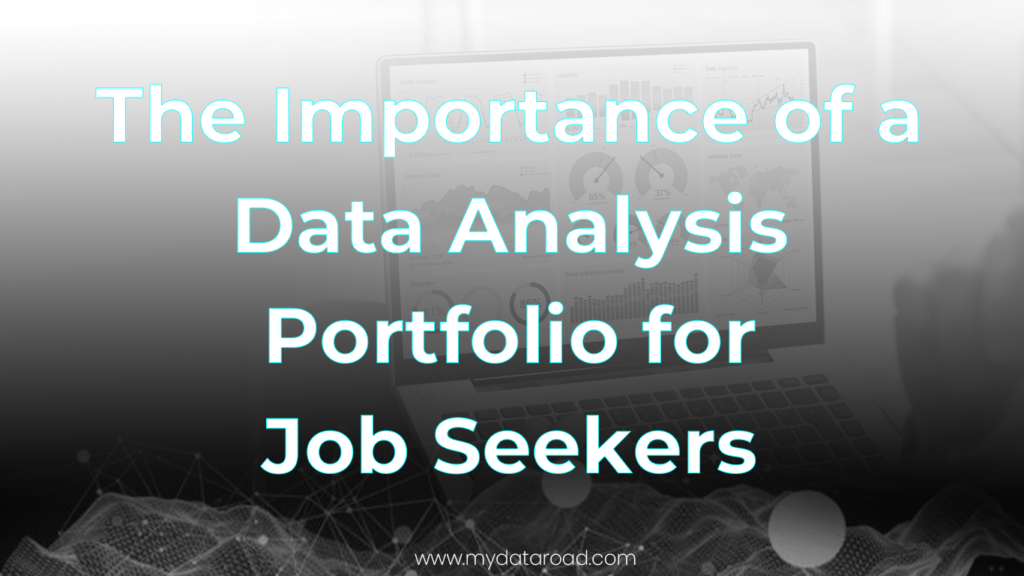Most aspiring data analysts will agree that charting a clear path to break into the field can be incredibly challenging.
In this comprehensive guide, you’ll discover a step-by-step roadmap to launch your data analyst career, whether you’re starting from scratch or looking to transition roles.
You’ll understand exactly what qualifications and technical skills are needed, find resources to self-educate along the way, and get actionable tips to ace interviews and excel as a newly-minted data analyst.
Introduction: The Gateway to a Data Analyst Career
Becoming a data analyst is an exciting career path that opens doors to many opportunities. As organizations increasingly rely on data to drive decisions, the demand for skilled data analysts continues rising across industries. But embarking on this journey requires dedication and strategic planning.
Let’s explore what it takes to break into this field and why it can be incredibly rewarding.
Is Data Analyst a Good Career? Understanding the Role’s Value
Data analyst roles provide tremendous value in today’s data-driven business landscape. As companies accumulate vast amounts of data, data analysts organize, process and analyze information to uncover patterns and insights that guide business strategy. Their skills are crucial for:
- Making data-informed decisions
- Optimizing business processes
- Identifying growth opportunities
- Gaining competitive advantages
This increasing reliance on data analytics fuels high demand for qualified data analysts across sectors like finance, marketing, healthcare and more. According to the U.S. Bureau of Labor Statistics, jobs for data analysts will grow much faster than average over the next decade, at over 25% growth expected.
So if you enjoy working with data, have strong analytical abilities, and want a future-proof career, becoming a data analyst is an excellent choice offering sustainable growth opportunities.
What qualifications do you need to be a data analyst?
To become a data analyst, there are a few key educational qualifications you typically need:
- A bachelor’s degree in a quantitative field such as statistics, mathematics, economics, computer science, information systems, or finance. These degrees equip you with essential analytical skills and knowledge of working with data.
- Coursework or training in data analytics tools and techniques. Many undergraduate programs now offer data analytics concentrations or specializations. Alternatively, you can complete post-graduate training programs or online courses in data analytics using platforms like Coursera, Udemy, edX etc.
- Statistical and programming languages proficiency. As a baseline, you need knowledge of spreadsheet programs, SQL, and Python or R. These allow you to extract, manipulate and analyze data at scale. Consider completing certifications to validate your skills.
While formal education builds critical hard skills, you also need soft skills like problem-solving, communication, creativity and business acumen. Explore online forums, local meetups and community events to continue advancing your expertise. With dedication and practice, you can chart a path to an exciting career in data analytics.
What does it take to become a data analyst?
Becoming a data analyst requires a combination of foundational education, technical skills development, hands-on experience, and soft skills.
The key steps include:
Get a bachelor’s degree
A bachelor’s degree in a field like statistics, computer science, or mathematics provides fundamental analytical and technical skills. Coursework covers areas like data mining, machine learning, programming languages like Python and R, SQL, and data visualization.
While some employers hire data analysts with an associate degree, a bachelor’s better equips you to advance.
Build technical abilities
You must master data analyst technical skills like:
- Python and R programming
- Statistical analysis and modeling
- Data mining techniques
- Data visualization platforms
- SQL and NoSQL databases
Online courses, bootcamps, and hands-on practice help strengthen these competencies.
Gain practical experience
Completing real-world projects makes your skills tangible.
Analyze open datasets, contribute to data analysis projects on GitHub, take on freelance gigs, or complete an internship. This demonstrates applied abilities to future employers.
Develop a portfolio
Curate 5-10 standout projects showcasing your end-to-end process.
Highlight your skills extracting, cleaning, analyzing, visualizing, and interpreting data. Share insights, models created, and tools leveraged.
A portfolio proves capabilities and is a key part of applications.
Hone soft skills
Data interpretation requires problem solving and critical thinking abilities. Strong communication skills enable explaining analytical insights to stakeholders.
Practice translating data findings through presentations and reports. Collaborate on group projects to build teamwork.
With the right mix of education, skills, and experience, you can break into this booming career field. Stay driven toward continual learning and professional development.
How do I become a data analyst with no experience?
Here are some practical steps you can follow to get your career change underway:
Learn technical skills through online courses and certifications
Although a bachelor’s degree is often required to become a data analyst, you can gain crucial skills through data analyst certifications and online tutorials. Many respected platforms like Coursera, edX, Udacity, and DataCamp offer affordable data analysis courses covering SQL, Python, Excel, data visualization tools, and more. These will provide the hands-on training to develop your technical abilities even without professional data analytic experience.
Certificates indicating your completion of key courses provide proof to employers that you have learned in-demand data analytics methodologies and technologies. They also demonstrate self-motivation to upskill. Some programs even connect you directly with companies recruiting for analytics roles.
Build a portfolio highlighting data analysis projects
With newly acquired data skills, conduct personal data analytics projects to exhibit your abilities in action. For example, perform exploratory analysis on public data sets from sources like Kaggle. Present visualized key findings in a GitHub repository or personal website data analyst portfolio.
Outlining your process from data cleaning to insights makes your work more transparent. Portfolios showcase skills and let data analyst hiring managers assess your potential value to their teams.
Tailor resumes and cover letters to emphasize transferable abilities
Your previous work experience likely developed other strengths like critical thinking, communication, research, multitasking, and attention to detail. These data analyst qualifications remain crucially relevant. Carefully align your resume and cover letters to the required and preferred criteria listed in data analyst job postings. Show how existing competencies will enable you to thrive in the role.
Soft skills paired with your newfound technical aptitudes clearly exhibit your readiness to add value as a capable data analyst. Highlight successes managing complex initiatives or improving efficiency in past positions. Quantify your impact with metrics.
Connect with the data analytics community
Engage data professionals on platforms like LinkedIn to exchange knowledge. Follow thought leaders publishing insightful content in the field. Join local data analytics Meetups to network in-person after the pandemic subsides. These actions keep you apprised of the latest real-world trends, techniques, and technologies to support your ongoing career education in alignment with data analyst jobs.
Can I become data analyst without degree?
Yes, it is possible to become a data analyst without a college degree. However, you will need to develop strong technical skills in areas like data analysis, statistics, SQL, Python, R, and more.
Here are some tips:
- Learn SQL to query and analyze data from databases
- Get proficient in Python and R data analysis libraries like Pandas, NumPy, SciPy, Matplotlib etc. Online courses or hands-on projects can help.
- Understand statistical concepts like distributions, statistical testing, regression models etc.
- Work on real-world data analysis projects to build an impressive portfolio demonstrating your skills
- Consider getting Google Data Analytics, IBM Data Analyst, or Microsoft Certified: Data Analyst Associate certifications
- Network with other data professionals by attending local tech events or conferences
- Highlight communication and problem-solving abilities since analysts need to translate data insights for stakeholders
With perseverance and consistent upskilling in latest data tools, it’s possible to break into data analytics roles without formal education. Build expertise through online learning and projects to convince hiring managers of your capabilities.
sbb-itb-0c864d8
Understanding the Role: What Do Data Analysts Do?
Data analysts are professionals who collect, process, analyze, and interpret data to uncover actionable insights that inform business strategy and decision making. This crucial role involves various responsibilities across the data analysis pipeline.
Key Data Analyst Responsibilities
Data analysts are involved in:
- Collecting data from multiple sources including databases, web servers, APIs, social media platforms, surveys, etc.
- Organizing messy, unstructured data into clean, consistent formats suitable for analysis
- Building SQL queries and scripts to aggregate, manipulate and analyze large datasets
- Identifying trends, patterns and relationships within data to derive meaningful conclusions
- Creating compelling interactive dashboards, reports and data visualizations to communicate findings
- Interpreting analysis results and translating technical findings into plain language recommendations for non-technical stakeholders
- Continuously monitoring performance indicators and emerging data to detect areas for optimization
The core focus areas for data analysts are cleansing, standardizing and enhancing data quality to set the foundation for accurate analysis. They then leverage their technical skills to manipulate, mine, visualize and interpret data to transform raw information into strategic business insights.
Data Analyst Technical Skills: From SQL to Visualization
Data analysts require proficiency across various technical domains including:
- SQL – To query, join, aggregate, transform and analyze data stored in databases
- Statistical analysis – Descriptive and inferential statistics to mathematically analyze datasets
- Analytics tools – Data mining, machine learning algorithms to reveal hidden insights
- Data visualization – Tools like Tableau, Power BI to create interactive dashboards and graphs
- Programming – Python, R for advanced analysis and automation
- Spreadsheets – Excel for connecting to data sources, building models and basic analysis
Data analysts also need to understand methodologies like statistical modeling, predictive analysis, A/B testing, etc. to select optimal approaches for deriving actionable business insights.
Soft Skills Valued
Alongside technical competencies, data analysts require crucial soft skills:
- Communication – Conveying technical findings simply to non-technical teams in easy-to-understand language
- Collaboration – Partnering with business teams to understand objectives and context for analysis
- Curiosity – Continuously asking questions to drill deeper into data and problems
- Business acumen – Understanding how companies operate to provide relevant, strategic recommendations
- Creative problem solving – Designing innovative solutions to broadly defined business issues
- Critical thinking – Logically evaluating assumptions, evidence and competing perspectives to avoid bias
Data analysis is a highly collaborative process, requiring close cross-functional teamwork to frame the right questions, interpret analysis appropriately and derive meaningful conclusions. Data analysts must synthesize technical and business understanding to provide data-backed guidance supporting key organizational decisions.
The Data Analyst Roadmap: Education and Qualifications
Data analysis is a growing field with strong career prospects. As organizations realize the value of data-driven insights, demand for qualified data analysts continues to rise. However, the path to becoming a data analyst can vary. This section explores common education requirements and qualifications to guide those interested in pursuing this career.
From Bachelor’s to Master’s: The Data Analyst Degree Path
A bachelor’s degree is the typical entry point for aspiring data analysts. Degrees in quantitative fields like statistics, mathematics, computer science, information systems or finance provide good foundations. Coursework develops critical thinking and statistical analysis proficiencies needed for the role.
Internships also offer invaluable experience using real-world tools and data. These opportunities can lead to full-time job offers post-graduation.
While not always mandatory, a master’s degree further equips candidates with specialized expertise. Popular choices like analytics, data science or business intelligence sharpen technical data skills. Programs feature extensive hands-on training in areas like:
- Statistical modeling and machine learning
- Data mining techniques
- Data visualization platforms
- SQL and NoSQL databases
A graduate degree signals greater mastery of data analysis to employers. It also enables transitioning into more advanced positions like data scientist or architect.
Ultimately, formal education builds a strong knowledge base. But data analysts truly sharpen abilities through continuous self-learning as technologies rapidly evolve.
Data Analyst Qualifications: Certifications and Experience
Beyond degrees, specific data analyst certifications verify technical competencies to employers. Entry-level courses like Google Data Analytics and IBM Data Analyst Professional validate core proficiencies. Intermediate programs in SQL, Tableau, Power BI or Python develop specialized fluencies.
But formal training only goes so far. Hands-on experience is critical to excel as a data analyst. Even internships or work in different fields exposing candidates to real analytics processes can be beneficial. This practical knowledge allows seamlessly transitioning across industries.
With the right mix of education, certifications and experience, professionals can clearly demonstrate data analyst qualifications to land fulfilling roles. But an openness to continuously upskill as the field innovates is key to long-term success.
Building the Foundation: Acquiring Essential Skills for Data Analysts
Aspiring analysts should develop key technical abilities across data processing, analytics, math, and visualization to perform the core responsibilities of the job effectively.
Data Analyst Technical Skills: Core Competencies
To excel as a data analyst, mastering SQL, Python, R, and statistical analysis techniques are fundamental, along with an aptitude for data visualization tools such as Tableau.
Acquiring data analyst how to become technical skills is critical for aspiring professionals. While a formal degree is not always required, analysts should build competency in:
- SQL: Structured Query Language skills enable analysts to extract, transform and load data from databases. Learning SQL allows querying, filtering, aggregation, and more to uncover insights.
- Python and R: These programming languages are invaluable for data cleaning, analysis, statistical modeling, machine learning, and reporting. Python and R form the foundation for automating workflows.
- Statistics: Grasping statistical concepts like regression, distributions, statistical testing enables sound data analysis. Analysts should get comfortable with techniques like A/B testing, correlation, sampling, and extrapolation.
- Data Visualization: Strong visualization skills make data insights consumable. Proficiency with tools like Tableau, Power BI, D3.js, and Matplotlib is key for impactful reports and dashboards.
Analysts also benefit from skills in:
- Spreadsheets
- Database systems like SQL Server
- ETL (Extract, Transform, Load data) processes
- Data modeling
- Machine learning
- Mathematics
- Communication and storytelling
There are abundant data analyst how to become resources to develop this diverse skillset. Structured online courses, books, tutorials, and real-world practice facilitate expertise. Some helpful places to start include:
- DataCamp – Interactive SQL, Python, R, and visualization courses
- DataQuest – Project-based learning focused on building job-ready data skills
- Codecademy – Free and paid programming courses including Python and SQL
- SQLBolt – Interactive SQL tutorials covering queries, aggregation, joins, etc.
Analysts should continuously expand abilities as technologies progress. Mastering data analyst technical skills early allows focusing on real-world problem solving versus tool proficiency. Handling complex analysis becomes intuitive over time.
The key is matching core competencies to business needs through practical application. With broad capabilities combined with communication and strategic thinking, analysts provide immense organizational value.
Becoming a Data Analyst for Free: Self-Learning and Resources
For those looking to switch careers or take their first step toward data analytics, this section provides guidance on acquiring skills without needing a formal degree initially.
Leveraging Online Resources: Data Analyst Courses and MOOCs
A wealth of free and low-cost online learning platforms offer comprehensive data analyst courses, enabling learners to build a strong foundation in data skills from the comfort of home.
Popular platforms like Coursera, edX, and Udemy offer beginner to advanced data analyst courses covering topics like:
- Python, R, SQL programming
- Data visualization and dashboarding
- Statistical analysis and machine learning
- Big data tools like Hadoop and Spark
- Data pipeline development
- Cloud data platforms
These massive open online courses (MOOCs) often feature video lectures, hands-on projects, forum discussions, and certification upon completion – all for free or at very low cost.
For example, Coursera’s IBM Data Analyst Professional Certificate provides over 75 hours of instruction across 10 courses that teach learners how to organize data, perform analytics, and share meaningful insights using Python and SQL.
Leveraging such abundant online learning materials enables data analyst how to become candidates to gain broad exposure across key skill areas on their own time and budget.
Expanding Skills with Hands-On Projects and Community Engagement
While online courses provide strong conceptual foundations, applying those learnings through real-world projects and community participation accelerates practical skill-building.
Platforms like Kaggle offer vast datasets that learners can use to formulate analysis questions, apply modeling techniques, and generate data-driven insights. Contributing to open source data projects on GitHub also enables hands-on engagement with end-to-end analytics pipelines.
Presenting such projects on a portfolio website or through Kaggle competitions allows data analyst how to become hopefuls to demonstrate expertise to potential employers. Joining local data analyst meetup groups further facilitates community building and networking opportunities.
Through such hands-on participation alongside formal coursework, aspiring data analysts can showcase functioning proof of their abilities even without formal credentials or work experience. This can open doors to entry-level data roles, enabling further progression down the data analyst roadmap.
Navigating the Job Market: Securing Data Analyst Jobs
Once qualified, strong interview preparation and a strategic job search are crucial to landing a data analyst position in a competitive market.
Acing the Interview: Showcasing Your Technical and Soft Skills
Preparation is key to demonstrating proficiency in data analysis during interviews. Familiarize yourself with common technical questions and prepare to articulate your soft skills and problem-solving abilities.
Here are some tips for acing a data analyst interview:
- Review your resume and portfolio: Refresh your memory on key projects, skills, and experience you want to highlight. This will help you provide clear examples when asked about your background.
- Practice explaining technical concepts: Be ready to explain core data analysis workflows like data cleaning, visualization, statistical modeling etc. Brush up on SQL, Python, R, Excel, Tableau and other tools you listed on your resume.
- Prepare for technical questions: Use resources like LeetCode, HackerRank, Stratashift etc to practice technical interview questions. Common areas tested include SQL queries, statistical analysis, data interpretation, Python/R coding.
- Highlight soft skills: Data analysis entails problem solving, critical thinking, communication and teamwork. Provide examples of how you demonstrated these on past projects and when working cross-functionally.
- Do mock interviews: Practice responding to common interview questions. Enlist a friend to conduct practice sessions so you can get comfortable articulating your experience.
With preparation and practice, you can confidently demonstrate the technical expertise and soft skills needed to excel as a data analyst.
The First 90 Days: Excelling in Your New Data Analyst Role
Setting clear goals, seeking feedback, and proactively learning the organization’s data landscape are pivotal for making a positive impact early on in your data analyst career.
In your first 90 days as a data analyst:
- Build relationships: Introduce yourself to key stakeholders in your department and cross-functional partners. Understanding their goals and challenges is crucial context for your work.
- Learn systems and data architecture: Document the organization’s data infrastructure, reservoirs and systems. Map how data flows to guide your analysis.
- Understand KPIs and metrics: Ask about key business metrics your analysis will aim to improve. Clarify what success looks like for key projects.
- Create 30/60/90 day plans: Outline clear objectives, skills to develop, and projects to tackle in your first months. Seek manager input to align on goals.
- Seek feedback frequently: Check in regularly with manager and partners on your work quality, communication style and team impact. Course correct early if any areas need improvement.
Invest time upfront to learn processes, systems and stakeholder needs. This solid foundation will set you up for an impactful data analyst career delivering value through analytics.
Embracing Growth: The Future for Data Analysts
Data is growing exponentially across industries, and skilled data analysts are needed to harness this data and provide powerful yet ethical insights. With more data being created than ever before, companies require professionals who can collect, clean, analyze, and clearly communicate data narratives to inform business strategy.
The future looks bright for aspiring data analysts. As organizations continue adopting data-driven decision making, demand for data talent will only intensify. Companies want strategic advisors who not only understand data, but appreciate nuances of the business to recommend data-backed growth opportunities.
Lifelong learning is essential in this fast-paced domain rife with new methodologies and innovations. While technical wizardry has its place, the most effective data analysts balance hard skills with soft skills. Blending statistical prowess with storytelling and emotional intelligence allows one to compel diverse audiences and spur change.
Passionate, ethical data analysts who effectively communicate insights while anticipating future trends will thrive. Despite exponential complexity, the fundamentals hold true – context matters. By embedding themselves within the business, data analysts gain necessary perspective guiding analytics, ensuring recommendations align with company values and the greater social good.
Related posts
- Data Analyst’s Roadmap: Navigating Your Career Path
- How to Become a Data Analyst: A Step-by-Step Guide
- Path to Become Data Analyst: Core Skills Uncovered
- How to Become a Professional Data Analyst: Essential Skills Mastery

Tech Writer | Data Analyst | Digital Creator



